Tapestries-60 | Pixels
A new baby girl, and some thoughts about time and presence.
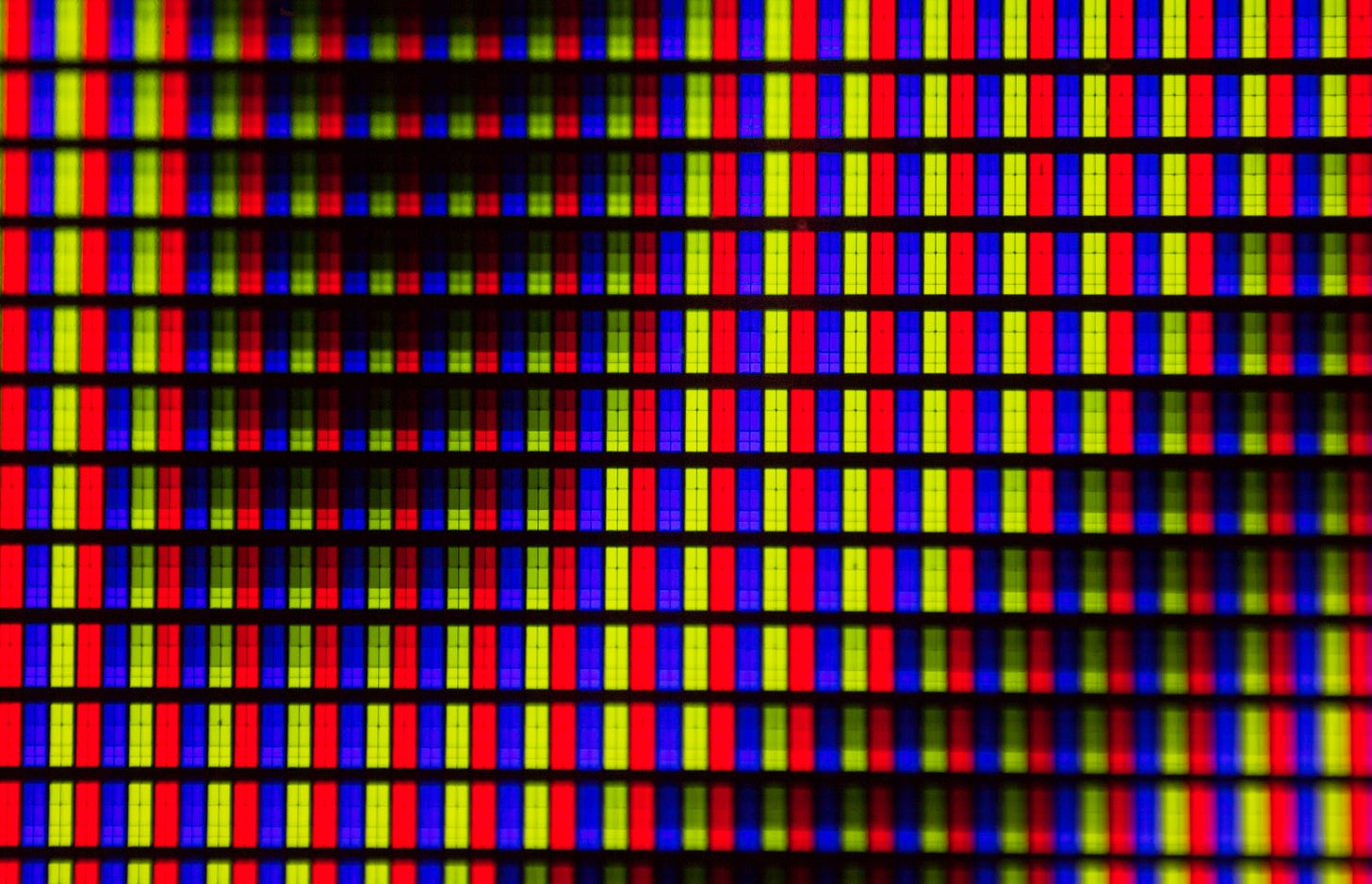
We welcomed a beautiful baby girl almost three months ago, named Ava Cooper. The time since then has been as I assume many first time parents would describe it: chaotic, bewildering, exhausting and exhilarating. As each day and week passes, the experience of being with Ava becomes ever more sublime. Alongside the sublime, Ava’s arrival pulled forward questions about the future, and added a sense of urgency to questions I (and I assume many of you) carry around as we make our way through the world. I’ve found that urgency to be unhelpful and counter-productive. This piece is therefore one about our impulse to focus on the future, and suggests some frameworks for cultivating a more balanced approach. It’s a slightly longer piece, so let’s start with some simple, abstract, pictures (and end with some real ones too).
The pixel-picture analogy
Tim Urban wrote a piece 10 years ago in Wait But Why titled “Life is a Picture, But You Live in a Pixel”. The piece explores a range of concepts, including the nature of expectations, the desire for meaning, and our “tendency to overestimate the hedonic impact of future events.” It uses a character named “Jack” to illuminate the concepts described above. I’m going to call him Daniel, because I’m talking about me. Halfway through the piece, Tim describes [Daniel]’s perspective as follows:
[Daniel] sees his life as a rich picture depicting an epic story and assumes that the key to his happiness lies in the broad components of the image.
But this is a mistake, because [Daniel] doesn’t live in the picture’s broad strokes, he lives at all times in a single pixel of the image—a single Today.
So while thousands of [Daniel]’s Todays will, to an outsider from far away, begin to look like a complete picture, [Daniel] spends each moment of his actual reality in one unremarkable Today pixel or another. [Daniel]’s error is brushing off his mundane Wednesday and focusing entirely on the big picture, when in fact the mundane Wednesday is the experience of his actual life.
[Daniel]’s story is one about the composition of our lives, and the way we treat its constituent parts. It’s a story about projecting forward, and about perspective. To me, it’s a story about the way we want to view the future versions of ourselves, and how an emphasis on that future version can lead us to lose sight of the present one. On reflection, I spent parts of my first few weeks with Ava overly focused on this future state, and since re-emphasizing the importance of the pixel (by returning to Tim’s piece I read many years ago), I’ve rediscovered a sense of contentment and calm. But before getting to me, let’s explore the pixel-picture construct a little further.
The prism through which we view our lives
We all carry around a picture, or tapestry, of the life we hope to live and outwardly project. It probably contains a combination of the people we call family and friends, the work that gives us our purpose and resources, and the lifestyle we lead alongside said family, friends and peers. Whether we paint this picture for our own fulfillment, or whether we project it for the validation of our imagined audiences (noting that these may actually be the same things), is a question I’ve written about at length and will share another time. But for now, suffice to say this picture is the culmination of the striving, success and growth we hope to achieve in the different parts of our lives.
The jarring and inescapable fact of our lives though, is that in each moment, we only occupy a single pixel in this broader tapestry. Our actions exist in the pixel, in pursuit of the bigger picture we aspire to create. That’s fine and great, and really just describes a deliberate and thoughtful approach to creating the life we want. But it can become counter productive when we pay too much attention to the difference between the pixel we’re living in, and the picture we aspire to create. An overemphasis on the gap between the two is what leads to anxiety. In this framework, anxiety can be viewed as a scaling problem between the present pixel and the future tapestry, and it’s one I found myself thinking about after Ava’s arrival.
We have a picture of the future we want to create. But this picture is accompanied by uncertainty about the brushstrokes that will get us there, and a lack of control for the how and the when and the if. Even more than that, my sense is that we want each pixel to resemble our desired future picture. We want to feel that in each moment, we are — if not actually living or embodying — at least moving towards our desired future. But clearly, in the pixel-picture construct, that’s an impossibility. A pixel is by definition the unitary building block of a picture, capable of only being one thing at one time. Comparing the pixel to the picture is not just fraught, it’s illogical, and it unfairly and unnecessarily burdens the pixel.
What I’ve learned with Ava
I realized a few weeks ago that I needed to reset my perspective. I realized I was feeling a newfound urgency to figure out how Tali and I were going to build the full and rich life we want for our little family. Alongside the bewildering experience of welcoming Ava — and its chaotic logistics, practical adjustments, and lack of sleep — charting the path from the pixel to the tapestry became a more immediate, pressing question to answer.
Intellectually, my response to this overly future-focused stance was to return to Oliver Burkeman’s quote that “life is a succession of transient experiences, valuable in themselves, which you'll miss if you're completely focused on the destination to which you hope they might be leading.” But while I preached presence in the abstract, I found it harder to put into practice. Thankfully though, as the weeks have rolled on, the gravity of moments spent with Ava have transformed what was an intellectual approach to presence, into a more visceral, tangible one. And this has included its own additional lessons about the texture of our lives, and provides an opportunity to extend the pixel analogy.
A compound or sum life?
One version of the story we tell about ourselves is that prior moments exist in service of our future selves. We acknowledge that our moments have present value, but that they also have future value, as the experiences of yesterday ultimately shape who we become. This is undoubtedly true, and memory is arguably the greatest driver of the notion of being a continuous self. But my hunch is that it creates the illusion that life is the compounded value of all of our moments, rather than the sum of them. It may be a wanky distinction, but it’s one I’ve come to appreciate in the pixel-picture construct with the benefit of Ava’s arrival.
We are taught to harness the power of compounding. Efforts or behaviors today, when followed consistently into the future, can generate remarkable, exponential results. It’s good advice, as many things do indeed compound. Interest compounds, as does equity value. Knowledge arguably compounds too, as do networks, skills and habits. But with compounding, the most important variable is time (assuming consistent application of effort). We diligently work towards these abstract financial and productivity-focused goals with the belief that time will work its magic, which it probably will. But it also means — at least in my experience — that the daily experience of the pixel can veer towards a type of monotony, where efforts in the pixel are justified in the context of their compound value in years to come. In this framing, time also becomes the most valuable resource or commodity we have, because to not use it efficiently or productively is to squander it, by undermining its compounding value.
This approach can promote an unhealthy relationship with time. But while Ava’s arrival was the catalyst for some anxiety about the future, as the weeks have rolled on, I’ve increasingly found that time spent with her is the experience of turning the resolution and contrast of the pixel all the way up. There is a crispness to being with her that punctuates the onward march towards a supposedly richer future, by overwhelming the present moment with richness itself. And as each moment passes, I realize the moments of yesterday are now gone; I don’t get to carry them in anything other than the form of a memory or photo (got lots). While they come together in the stories we tell, they exist in individual form. My takeaway from this experience has been that life is simply the sum of many moments. Some are mundane, and some are sublime. But each stands on its own, relatively independent of what’s come before, and what’s to come ahead. And I’ve found that this stance, with its more tangible posture towards the present, has made me calmer, happier and more content.
Bringing it together
Tali and I recently spoke about the concept of having great days. If I’m being honest, as I’ve gotten older, there’s been a growing gap between my truly great or incredible days. As we age, these days still come, but perhaps less frequently than they did when we were children or younger adults. And that’s fine! If the above reads as sad or melancholy, that’s not my intention. I’m blessed with a wonderful life, I’m just realistic that the rich tapestry of our lives includes lots of monochrome pixels. But with Ava’s arrival, I feel like I’ve had some really special days. This isn’t to say that the bar for great is now hanging with an adorable newborn. It’s just to say that she’s given me a new lens through which to look at the present, both now and in the future.
We place the present in a forward-looking context, because our minds are oriented to the future more than the past. To think, at a fundamental level, is to simulate versions of the future. So naturally, our mind wanders ahead. My personal response to uncertainty about the future is to plan and attempt to control. But doing so is futile and counter-productive, especially when the thing trying to be controlled or solved is the future state of the life we want to build for our families. It seems obvious when you type it on a page, but it took me a few weeks to re-discover that life is not a puzzle to be solved, but rather a moment to be lived, one at a time.
I guess there are two parts to this piece. The first is reflecting on the wisdom conveyed in something I read a long time ago. And the second, and more importantly, is a directive to myself: a reminder to appreciate this moment for what it is. Without exaggerating, in the last few weeks I’ve had some of the best moments of my life: holding a calm and sleepy Ava on my chest after a feed, or bringing her into bed in the morning to lie between Tali and I, eyes open and alert, with smile flashing across her face on cue. For that, and many other things, I’m incredibly grateful.
This has been a long personal reflection, but an important one. And I guess I could have saved you the time with just the following: smell the fucking roses.
And after all those words, and to finish a post about pixels, here are some photos of the little girl. Until next time!



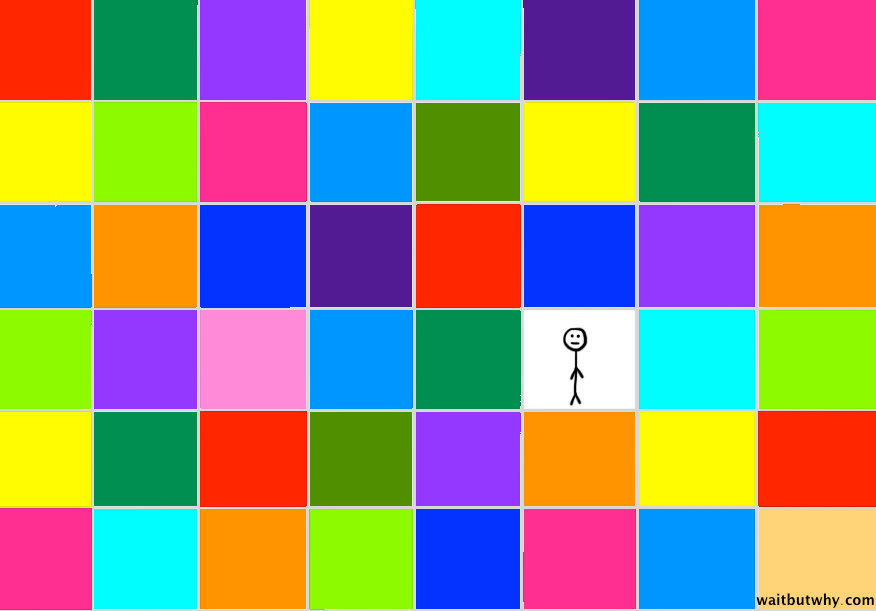
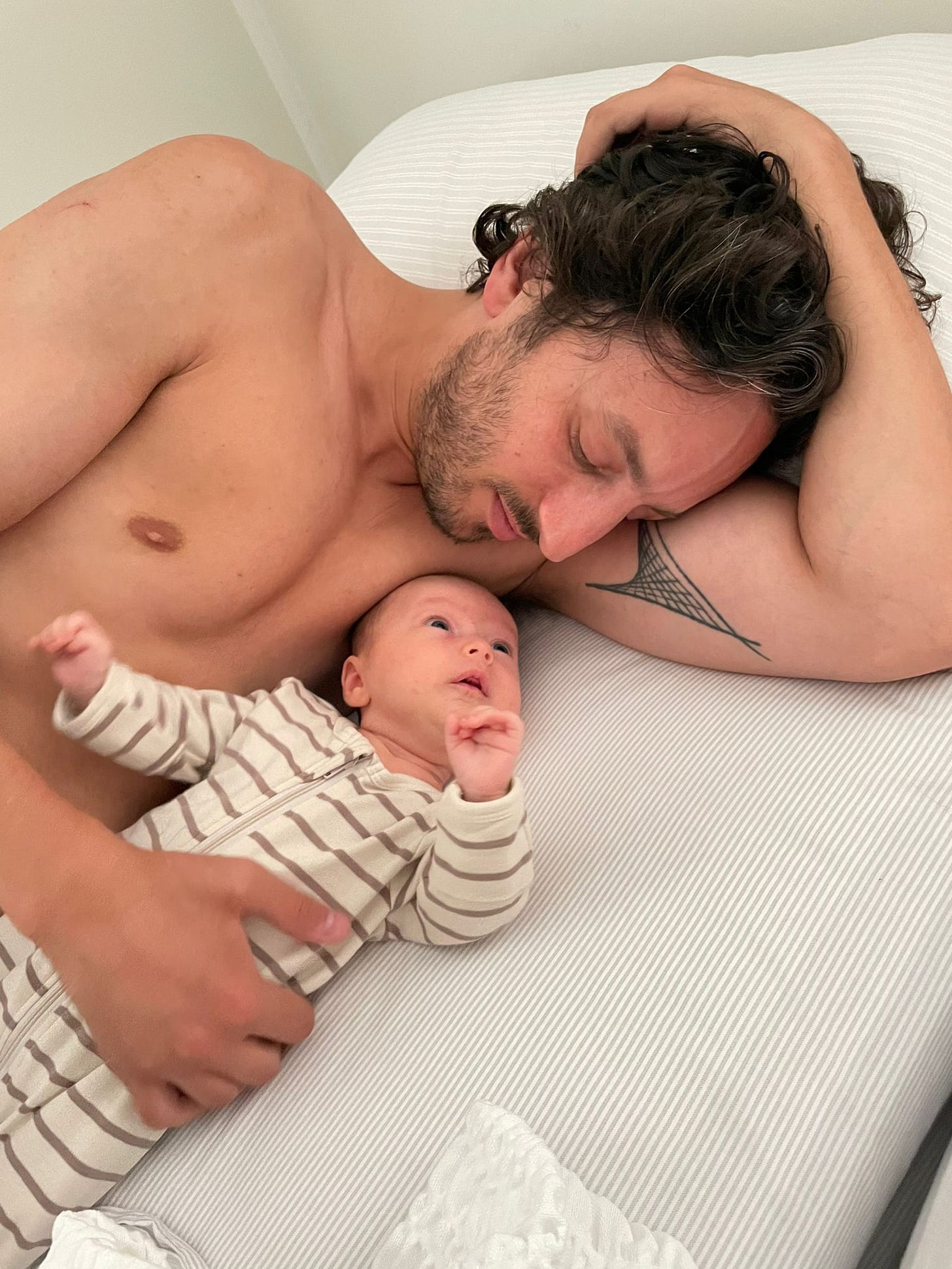
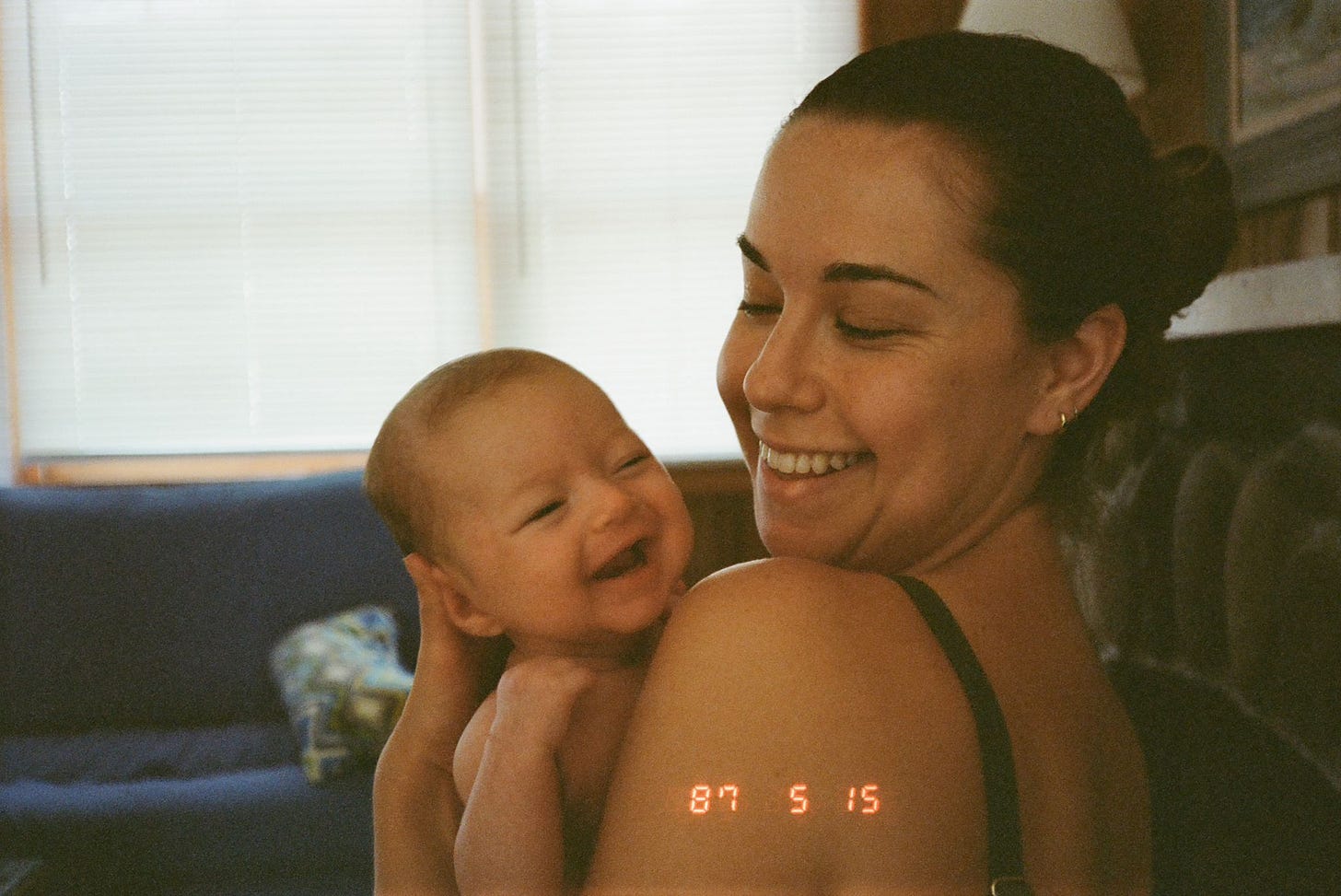
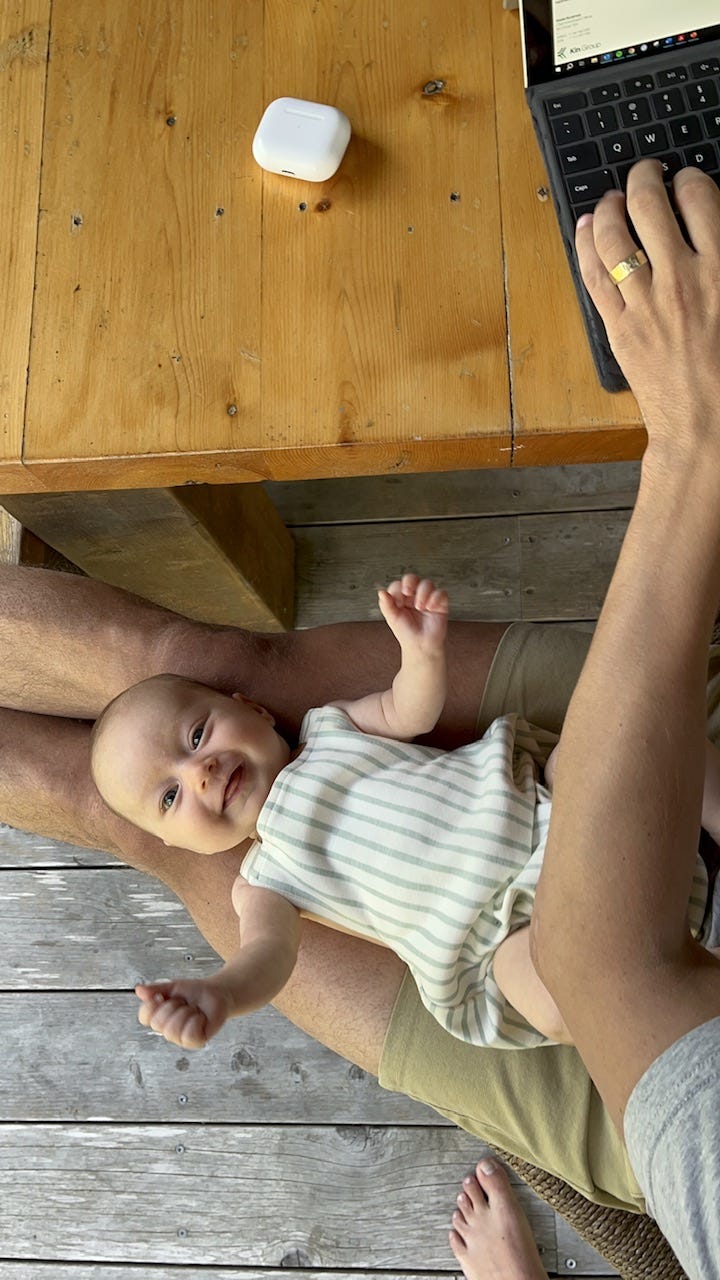
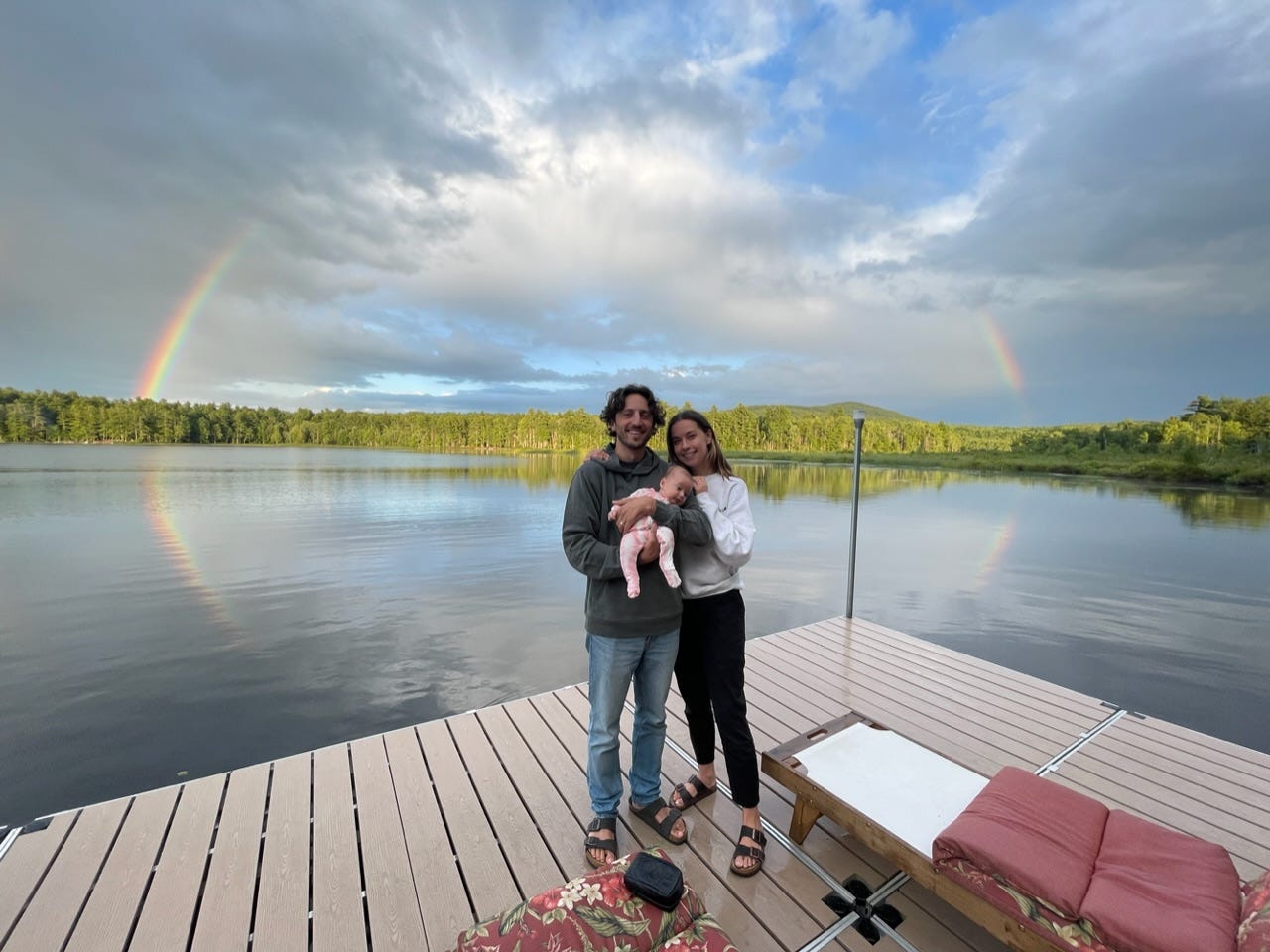
Really enjoyed this read, and yes I think you've hit on a secret that slowing down and just being present is what parenting is about. Something that landed with me is that you'll only have THIS year with the kids once. So just one summer you'll have 1 baby this small. Also, the kids are so wonderfully able to just 'be' in the world with full presence... it's a great lesson to learn from them. (now if I could just get off my bloody phone more...)
I loved this piece, to be reminded of staying in the moments…beautifully put. Fresh angle.